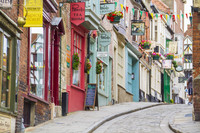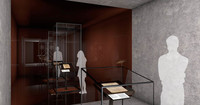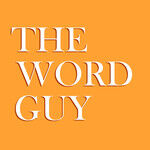By Ruth A. Hill
England has exported a lot of culture to the world — Shakespeare, afternoon tea, Charles Dickens, the Beatles and lots more. But the Magna Carta, or "Great Charter," may be the most important export that ever left the British Isles. Year 2015 marks 800 years since the charter launched democratic ideas the world over, and England is inviting everyone to enjoy the anniversary celebration.
The charter greatly influenced creators of democracies the world over, including authors of the U.S. Declaration of Independence and Constitution, the foundations of American governance and society. Sir Robert Worcester, chairman of the Magna Carta 800th Committee, is among scholars and others who credit Magna Carta with such concepts as due process of law, no taxation without representation and freedom of religion, among other society-changing ideas it influenced from the Middle Ages forward.
Magna Carta emerged during the reign of "Bad King John," a despot who overtaxed his people at all levels from peasants to barons. A civil war occurred, and the barons forced John to seal the famous document. But more strife and time passed before Magna Carta was accepted willingly by the monarchy.
Britain is devoting millions of pounds to spotlighting the document's eight centuries of worldwide gravitas and sites connected to its history. Events, conferences and celebrations for the 800th begin in February, when all four surviving parchment originals of the 1215 charter go on display for the first time at the British Library in London. The library's exhibition, "Magna Carta: Law, Liberty, Legacy," traces the history of the document from inception to the present day. Two of the originals will return to their homes in Lincoln and Salisbury cathedrals early in April.
Six tour trails have been mapped (www.magnacartatrails.com) to guide travelers about access to sites and stories associated with the Magna Carta's history across the land. Included are day tours out of London as well as multiday treks across the English countryside. The routes will get travelers into the history as well as England's stunning landscapes, cities and important sites outside London.
Magna Carta locations all over England will mark the anniversary, but the centerpiece celebration will be June 13-14 in Lincoln, about three hours' drive from London. This cathedral city was home to Stephen Langton, an archbishop of Canterbury and major player in struggles with the king that led to creation of the Magna Carta.
Lincoln's Magna Carta Weekend will provide two days and one night of memorable music, sights and sounds involving the whole city: www.visitlincoln.com/magnacarta.
Lincoln Castle reopens its doors April 1 following a five-year, $30 million investment and includes the new David P.J. Ross Magna Carta Vault, a heritage center and a restored prison. The castle is also home to the 1217 Charter of the Forest, a lesser-known document that added freedoms to those in the Magna Carta. The castle has one of only two surviving copies, making the castle the place to see both imposing documents.
The newly restored castle dates to 1068 and William the Conqueror. Inside the new vault a wall of words showing the full translated text of the Magna Carta with key phrases in gold command the setting. Films that bring history to life will also be part of the vault scene.
The new Heritage Skills Center on the castle grounds is where visitors may learn skills such as stained-glass window-making and stone masonry. And the towers and dungeons of the castle's Victorian-era prison will reveal stories of former inmates. Visitors may acquire tickets for entry to both the castle and the Gothic-style Lincoln Cathedral. For information on Lincoln and its surroundings, visit www.visitlincolnshire.com.
The British Library in London is home for two of the four surviving original charter copies. The Tower of London was revolutionized by Henry III — the first British monarch to endorse the charter of his own free will.
Magna Carta Island about 20 miles west of London is where King John was forced by his barons to accept the charter at Runnymede. The Magna Carta Memorial, a domed classical temple built by the American Bar Association to commemorate the symbol of liberty under law, is there.
Salisbury, once a Roman garrison town is now much more. The city center has the Salisbury Cathedral, the tallest medieval building in the world. The stunning interior is one of England's most impressive, and the best surviving original copy of the Magna Carta is housed in Chapter House. Stonehenge, the UNESCO World Heritage Site, is near Salisbury.
In Durham the towering and elegant Durham Cathedral dates to the Norman era and has three copies of the Magna Carta. One is the signed 1217 revision by Henry III, King John's son. The second, from 1225, was the first copy sealed by Henry III that contained a declaration that it was sealed by the king's free will. The third copy was the final incarnation from 1300 and the last full version of the Magna Carta.
At Oxford, the university's famed Bodleian Library, one of Europe's oldest, has three copies of the 1217 charter, which was a revision of the Magna Carta. It was issued during the reign of Henry III when he was a child and bears the seal of his guardians and regents. Henry's royal seal was attached to a later edition, the 1225 Charter of the Forest.
WHEN YOU GO
Event, tour and exhibit Information about the Magna Carta's 800th anniversary is at www.magnacarta800th.com.


Ruth A. Hill is a freelance writer. To read features by other Creators Syndicate writers and cartoonists, visit the Creators Syndicate website at www.creators.com.






View Comments